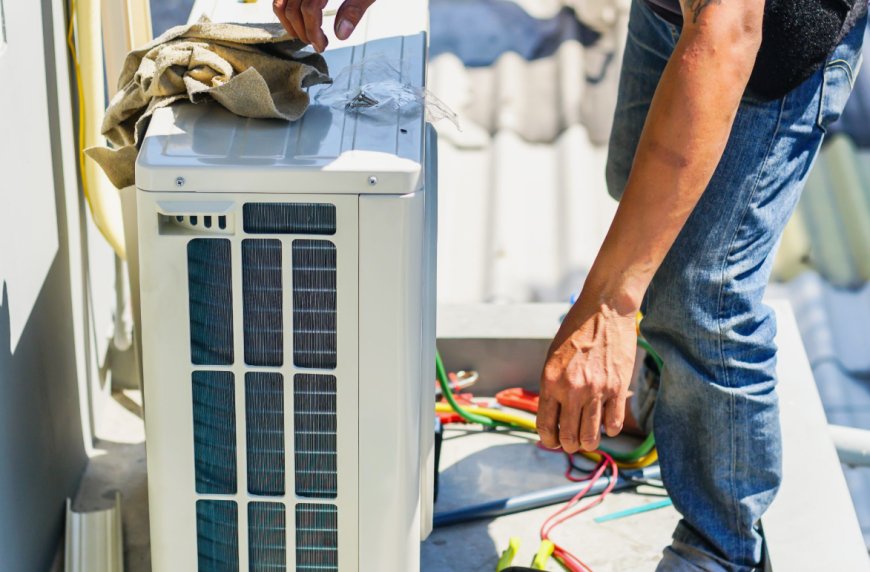Air Conditioner Replacement and Heating Repair: What Homeowners Need to Know

When your HVAC system begins to falter, youre faced with two crucial questions: Should you invest in an air conditioner replacement? And is it time for professional heating repair services? These are common concerns, especially for homeowners dealing with outdated or inefficient systems. This article will guide you through the essentials of air conditioner replacement and heating repair, helping you make informed decisions that ensure year-round comfort and energy efficiency.
Understanding the Importance of HVAC Maintenance
Your heating and cooling systems are vital components of your homes comfort and safety. They regulate indoor temperatures, filter air, and ensure a healthy living environment. Regular maintenance and timely repairs can extend the life of these systems, but there comes a time when replacement or professional intervention becomes necessary.
Signs You Need an Air Conditioner Replacement
An air conditioning system typically lasts 10 to 15 years, depending on usage, maintenance, and the brand. If youre noticing any of the following issues, it might be time for an air conditioner replacement:
1. Increased Energy Bills
Older units tend to lose efficiency, causing your energy bills to spike. If your AC is working harder to cool the same space, its likely time for an upgrade.
2. Frequent Repairs
Are you calling your HVAC technician more than once a season? If so, youre likely spending more on repairs than you would on a new, energy-efficient model.
3. Inconsistent Cooling
If certain areas in your home are cooler than others, or if your AC doesnt keep up on hot days, your system may be struggling.
4. Outdated Technology
Newer air conditioners come with advanced features like programmable thermostats, smart home integration, and high SEER (Seasonal Energy Efficiency Ratio) ratings. Replacing your old unit can enhance comfort and savings.
Choosing the Right Air Conditioner Replacement
If replacement is on the horizon, consider the following factors:
Efficiency Ratings
Look for ENERGY STAR-rated systems with high SEER ratings. These models consume less energy, reducing your monthly utility bills.
Size and Capacity
A system thats too large or too small can cause inefficiency and discomfort. Have a professional perform a load calculation to determine the correct size for your home.
Type of System
Options include central air conditioners, ductless mini-splits, heat pumps, and hybrid systems. Each has pros and cons based on your home layout and climate.
Professional Installation
Proper installation is crucial. Even the most advanced unit wont perform well if its not installed correctly.
Heating Repair: When to Call a Professional
When temperatures drop, your furnace or heating system becomes indispensable. Ignoring issues can lead to complete breakdowns, costly repairs, and even health risks such as carbon monoxide leaks. Here are key signs that you need heating repair:
1. Unusual Noises
Clanking, banging, or screeching sounds often indicate mechanical issues like loose parts, a failing motor, or ductwork problems.
2. Insufficient Heat
If your heater is running but your home remains cold, there may be issues with the thermostat, pilot light, or heat exchanger.
3. Frequent Cycling
Short cyclingwhen your heater turns on and off frequentlycan cause wear and tear and points to underlying issues.
4. Poor Air Quality
Dusty or dry air, unusual odors, or increased allergies can stem from a faulty furnace or dirty filters.
Common Heating Repair Services
Heating repair professionals are equipped to handle a variety of issues, including:
- Thermostat Calibration
Ensures your system reads temperatures accurately and maintains desired warmth. - Ignition or Pilot Light Repair
Essential for older gas furnaces that rely on a pilot light to ignite fuel. - Blower Motor Repair or Replacement
This component circulates warm air through your vents. If it fails, you may notice weak airflow or no heat. - Heat Exchanger Repair
Cracks in the heat exchanger can be dangerous. Technicians can inspect and repair or replace it as needed.
Benefits of Timely Heating Repair and Air Conditioner Replacement
Improved Energy Efficiency
Upgraded or properly maintained systems use less energy, helping you save on utility bills.
Enhanced Indoor Comfort
Youll enjoy consistent temperatures, quieter operation, and better humidity control.
Fewer Breakdowns
Proactive repairs reduce the likelihood of emergency failures during extreme weather.
Healthier Air Quality
Newer HVAC systems often come with advanced filtration options, removing allergens and pollutants from the air.
Increased Home Value
Modern, efficient heating and cooling systems are appealing to homebuyers and can increase your propertys market value.
Should You Replace or Repair?
This is a common dilemma for many homeowners. Heres a quick guide:
|
Condition
|
Recommendation
|
|
Unit is over 12-15 years old
|
Replace
|
|
Frequent breakdowns
|
Replace
|
|
Minor issues in a newer system
|
Repair
|
|
High repair cost (more than 50% of replacement cost)
|
Replace
|
|
Inconsistent or insufficient performance
|
Consider replacement
|
HVAC Professionals: Your Trusted Partner
Whether youre facing an unexpected breakdown or planning for a system upgrade, working with a licensed HVAC professional is key. They can inspect your current system, recommend cost-effective solutions, and ensure installation or repairs are completed safely and efficiently.
Conclusion
Staying ahead of heating and cooling issues with timely heating repair and air conditioner replacement can dramatically improve your comfort, energy efficiency, and peace of mind. Knowing when to repair and when to replaceand working with qualified professionalsensures your home stays comfortable all year long.
If youre experiencing any of the symptoms discussed in this article, dont wait until the problem escalates. Schedule an HVAC inspection today and take the first step toward a more comfortable and energy-efficient home.























